CNN
—
The ultimate lick of paint was barely dry on the newly constructed, white-tiled Al-Hasanat dwelling when the conflict in Gaza erupted in October.
For 3-year-old Ayten, the house in central Gaza was a supply of immense pleasure. “That is our stunning home,” she would say to anybody who would pay attention, her father, Ahmed Al-Hasanat, recounted.
However two weeks after the household moved into their new dwelling, they had been pressured to flee the besieged Al-Mughraqa neighborhood, mentioned Al-Hasanat. Once they returned in November, they discovered their house badly broken by Israeli strikes. A doll belonging to Ayten lay among the many rubble, peeking out from behind a damaged door.
“I cried for my space, my home, and every little thing round me,” Al-Hasanat instructed CNN in June. “Ayten mentioned, ‘Our stunning home is gone, Dad.’ Then I entered the house and introduced her the doll.
“She mentioned, ‘Daddy, my doll died.’”
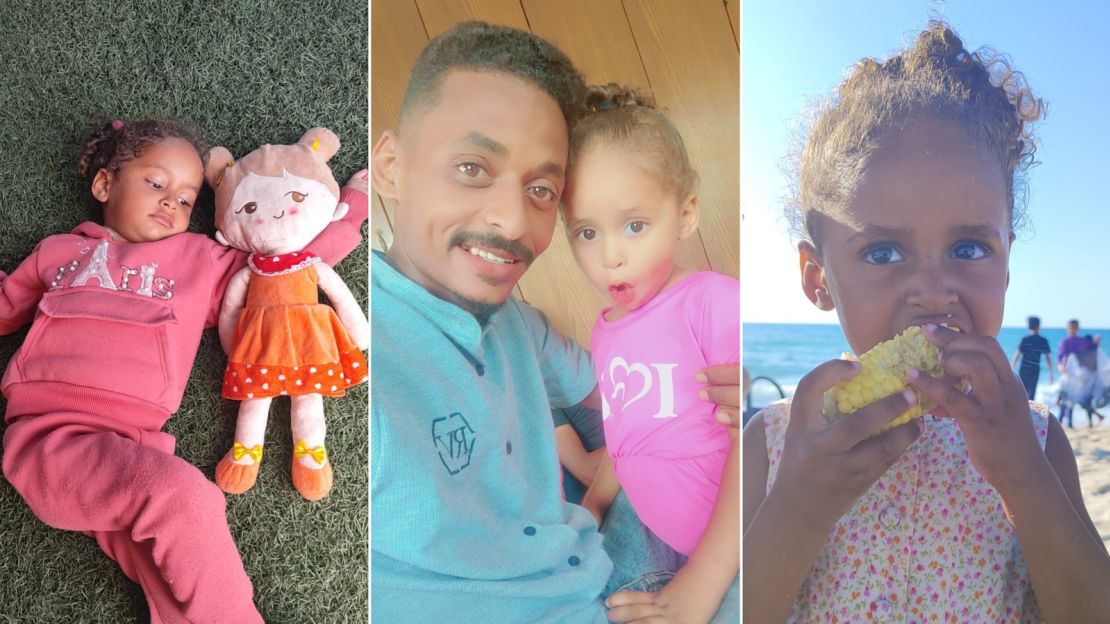
After greater than 9 months of combating in Gaza, the plush toy is now a treasured reminder of the lives they led earlier than the conflict. The Israeli army offensive has torn households aside, erased whole communities and decreased cultural websites to clutter. Nearly the complete inhabitants – as much as 1.9 million folks – has been displaced, in accordance to the United Nations. A number of Palestinians instructed CNN they may take solely their most vital private objects on lengthy and dangerous journeys of displacement.
From neatly organizing letters whereas staying in labyrinthine tent camps, to protecting branches from household olive bushes, some say they’re doing all they’ll to maintain recollections alive. For a lot of, repeated displacement means reliving the trauma of generations uprooted by al-Nakba, or “the disaster,” when roughly 700,000 Palestinians fled or had been forcibly expelled from their houses in historic Palestine, throughout the creation of Israel in 1948.
Others instructed CNN the preservation of household heirlooms symbolizes a collective effort to carry onto Palestinian identification – and the hope of returning to their houses in Gaza.
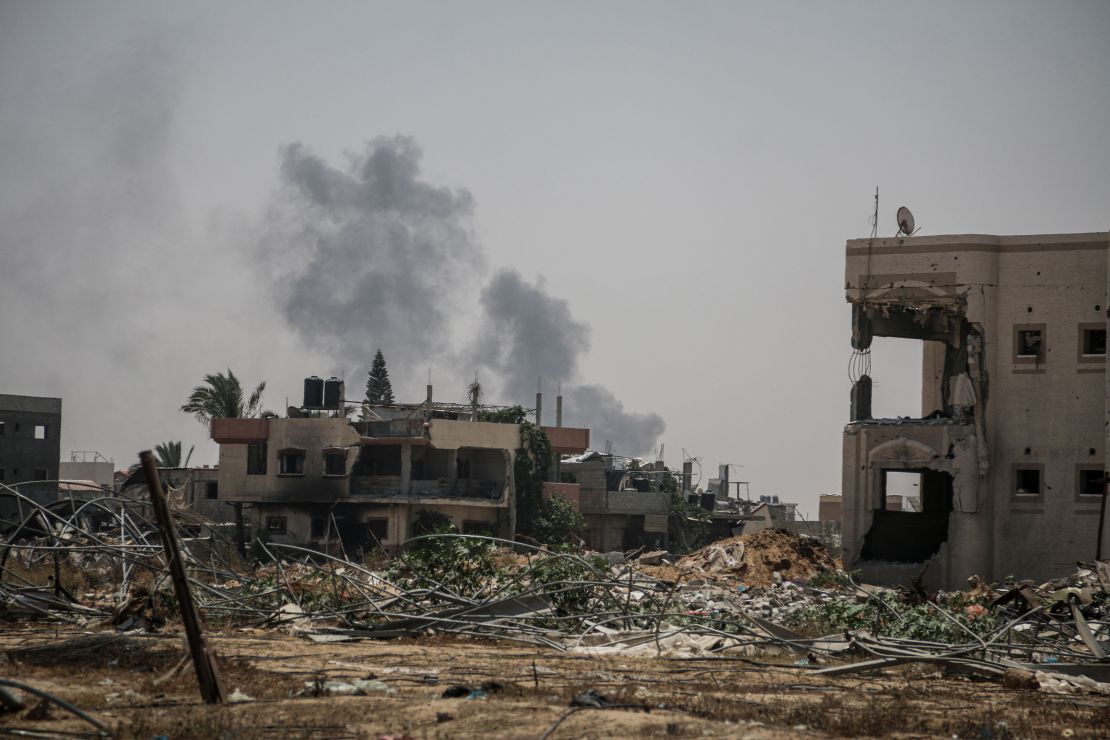
Israel launched its army offensive on October 7 after the militant group Hamas, which governs Gaza, attacked southern Israel. No less than 1,200 folks had been killed and greater than 250 others kidnapped, in accordance with Israeli authorities.
Israeli strikes in Gaza have since killed greater than 39,000 Palestinians and injured one other 90,000, in accordance with the Ministry of Well being there.
“Each second we reside have to be documented,” Al-Hasanat, a father-of-three, instructed CNN.
Earlier than the conflict, Fadi Adwan was finding out for {an electrical} engineering diploma on the Islamic College of Gaza, his dream since he was a young person. As of late, he fiddles with a navy and grey scientific calculator inside a tent in Rafah, within the south.
Israeli strikes destroyed a number of of the college’s buildings within the early days of the conflict, Palestinian information company WAFA reported.
“Since I used to be within the tenth grade, I at all times had a calculator in my arms,” mentioned the scholar, in his early 20s. He and his household have been displaced a minimum of 5 occasions since October, he added. “I used to be pondering that we might go dwelling after a month or so, however issues weren’t the identical on this conflict as earlier wars.”
Israeli bombardment has largely worn out educational and cultural establishments in Gaza, in accordance with the UN. Greater than 75% of faculties in Gaza will want both full reconstruction or main rehabilitation work to be practical once more, the UN reported in June. 1000’s of scholars have been killed and injured for the reason that begin of the conflict, WAFA reported in early July, citing the Ministry of Schooling and Increased Schooling in Gaza. College students instructed CNN days spent on campus have been changed by repeated displacement and bloodshed. Some have held onto their college notes, impressed by hopes of rebuilding their future after the conflict.
“I stood with tears in my eyes in entrance of my wardrobe, gazing at my belongings,” 20-year-old Haya Ismail instructed CNN, as she recalled her closing minutes in her dwelling in Gaza Metropolis, amid the sound of approaching bombing final November.
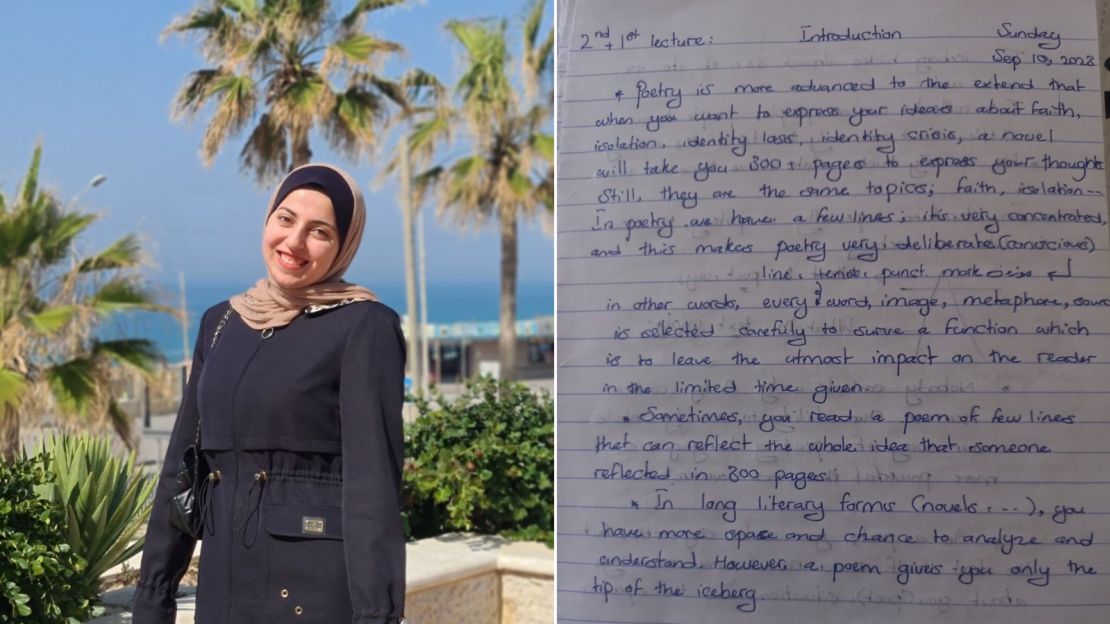
As her household ready to flee, Ismail instructed her three sisters to fill a small field with their most treasured possessions. Her youthful sister, Dina, contributed a necklace and a few handwritten letters from shut buddies.
Ismail mentioned she selected to pack her third-year college notes, which had been neatly written in English with a flash of pink and yellow highlighter underscoring the phrases “first lecture,” in accordance with photos seen by CNN. Seven months later, Ismail says she sits observing her notes in a relative’s home in Deir Al-Balah, the place her household have been displaced.
The handwritten pages are a tribute to her much-loved college professor, Refaat Alareer, who was instrumental in serving to younger Palestinians inform their tales in English. The famed poet and author spoke to CNN in October, months earlier than he was killed by an Israeli airstrike in northern Gaza.
“Dr. Refaat’s voice is what retains ringing in my head each time I see my notes,” mentioned Ismail. “He made us conscious of the facility of phrases and writing in delivering messages to the world, so we as Gazans can be heard.”
Ismail wonders if she’s going to relive the plight of her grandparents, whose lives had been uprooted in 1948, after they had been kids. Her solely residing grandparent – her paternal grandma, who has Alzheimer’s illness – nonetheless remembers the horrors of al-Nakba, Ismail mentioned.
Streams of Palestinians have been pressured to flee beneath Israeli bombardment since October, because the conflict uproots new generations. Some instructed CNN that their expertise echoed their ancestral historical past.
“I hate it once I understand that I’m reliving the precise wretched destiny my grandparents as soon as lived… I too can be traumatized and connected to my previous life for so long as I reside,” Ismail mentioned.
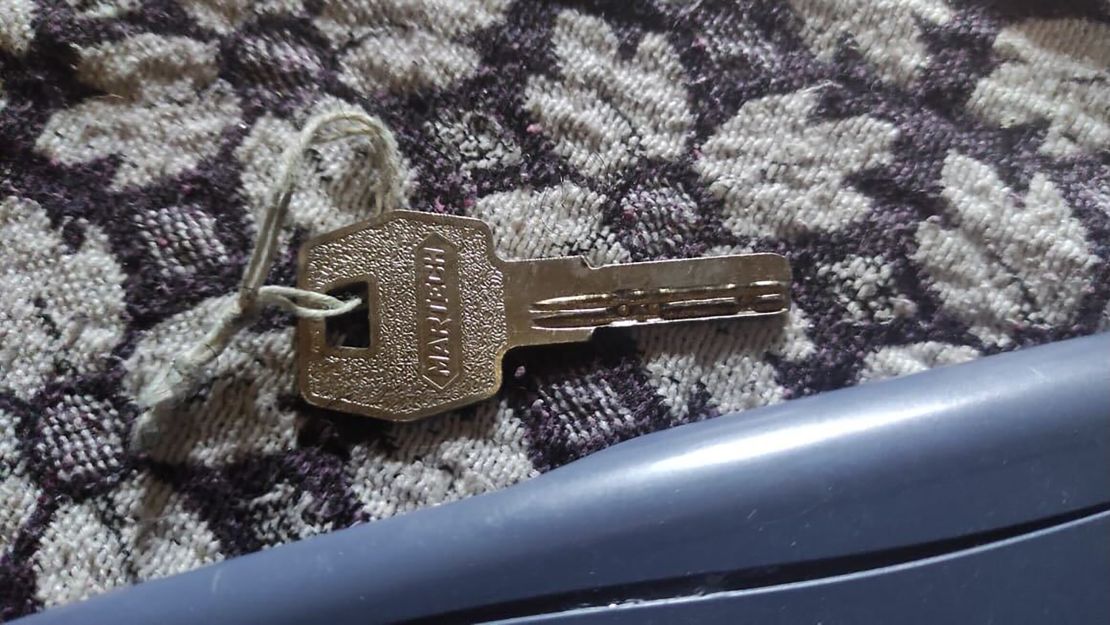
Cycles of repeated displacement – with out the promise of return – are embedded inside Palestinian communities, in accordance with Rochelle Davis, an affiliate professor of anthropology at Georgetown College.
“Each Palestinian in Gaza has the attention that if you go away (dwelling), you will not be going again, due to the expertise of the Nakba and every little thing that’s occurred since,” she instructed CNN. “That may be very completely different than many refugees on the planet at the moment.”
CNN beforehand reported on Palestinians in Gaza filling “emergency luggage” with necessary paperwork and a choose few keepsakes, leaving them by the door in case looming Israeli invasion pressured them to flee – even earlier than October 7.
“I used to marvel why they had been leaving their houses in 1948,” mentioned Adwan, {the electrical} engineering pupil. “However when this conflict occurred, I understood why they left their houses; due to the horrific massacres that occurred and due to the blood that was shed.”
Small inexperienced leaves cling to a withering olive department which 19-year-old Raghad Ezzat Hamouda took in October from a tree which had been planted by her father of their dwelling in Beit Lahia, northern Gaza.
Having been displaced a minimum of six occasions, Hamouda has preserved the department – and a keffiyeh, the normal scarf worn by many Palestinians, that belonged to her grandmother, Tamam – as they remind her of her “beloved homeland,” she says.
“Our ancestors had been displaced by Israel in 1948, and the scene at the moment in 2024 is repeated,” she added.
As soon as a marker of Palestinian life, Hamouda says her black-and-white fishnet-patterned keffiyeh is now an emblem of loss.
She mentioned 85-year-old Tamam, a Nakba survivor, was injured when Israeli tanks opened hearth because the household fled from northern to western Gaza in December. She was pushing her grandmother in her wheelchair on the time, she recalled. {The teenager} mentioned her grandmother bled to loss of life earlier than they may get her to a hospital. “My grandmother was very affectionate and beloved her grandchildren very a lot,” she mentioned. “She beloved to smile and gave us hope, particularly throughout occasions of conflict.”
The IDF instructed CNN it couldn’t touch upon allegations of the focused assault with out geographic coordinates and the particular time, however supplied CNN with a generic assertion it has typically used throughout the conflict in Gaza. CNN supplied the situation and date for the assault in query.
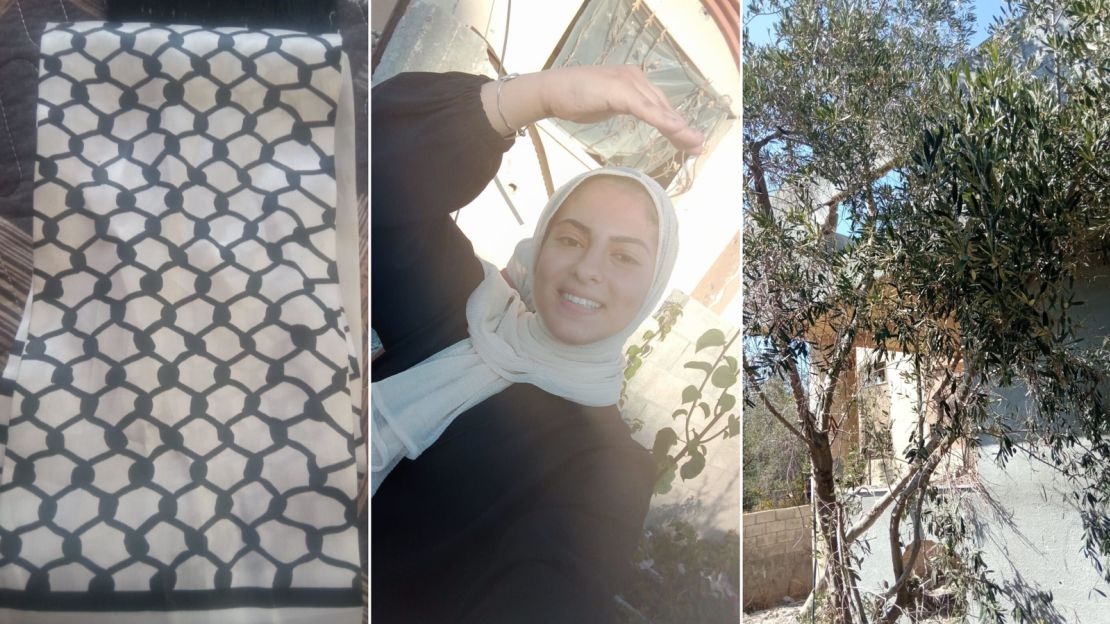
With no finish to the conflict in sight, different Palestinians instructed CNN they’ve held onto their home keys as a reminder of dwelling. Many could by no means have the ability to use them; Israel’s army marketing campaign has destroyed 150,000 houses within the enclave, the Authorities Media Workplace in Gaza mentioned on July 7. However for generations of Palestinians relationship again to al-Nakba, the home key has turn into a potent image of a shared hope to return dwelling, in accordance with the Museum of the Palestinian Folks.
Together with home keys, some Palestinians may also have passports and land deeds from the Nineteen Forties testifying to pre-existing possession of land in what’s now Israel, in accordance with Dr. Scott Webster, a tutorial from the College of Sydney. No less than 70% of residents in Gaza are refugees, those that had been displaced from their houses throughout the creation of Israel and their descendants, Amnesty Worldwide says.
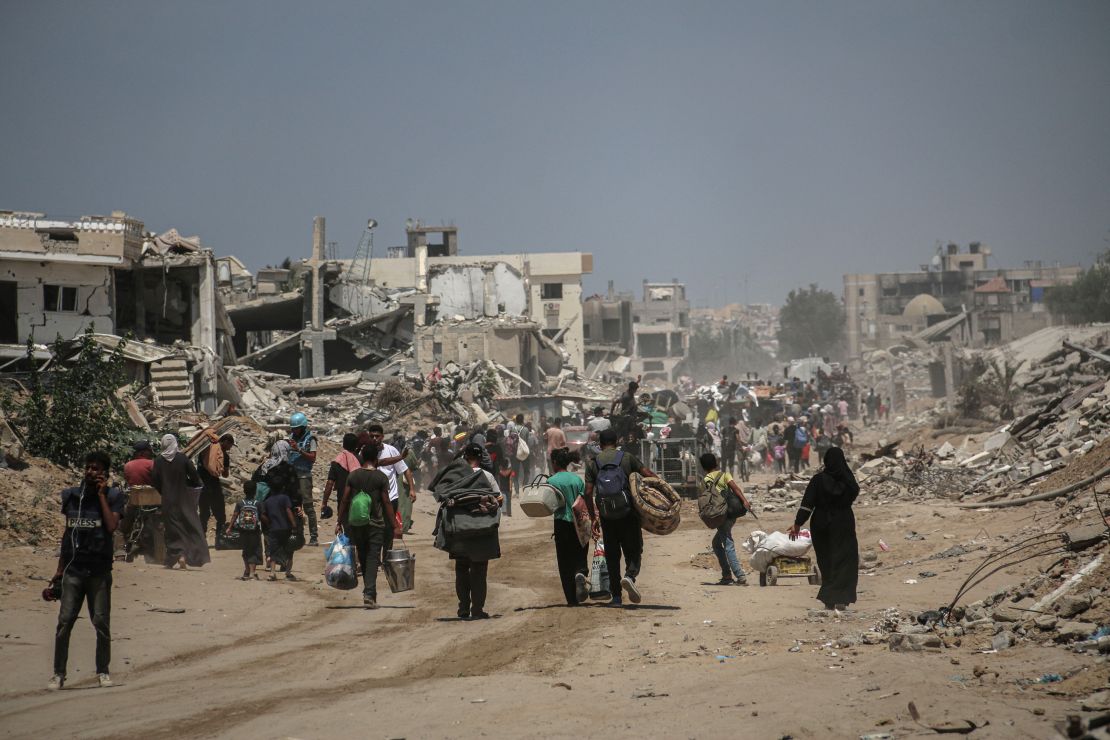
“The home secret’s necessary as a result of it brings with it all of the recollections, recollections of the home and the backyard round it, and the grapevines,” mentioned Adwan, who has held onto his keys whereas being pressured to flee a number of occasions, together with from the besieged Al-Shifa Hospital.
“My father and mom have been working exhausting for 30 years to have the ability to construct this home… It was partially destroyed in 2014. We constructed it once more and it was destroyed once more,” he mentioned. “We’re folks with lives and recollections… Possibly at some point somebody would possibly care about our trigger and assist finish our struggling.”
Palestinian mother and father instructed CNN they had been juggling their very own fears for survival whereas attempting to reassure their kids beneath a relentless menace of Israeli strikes. Kids throughout the Gaza Strip are experiencing lack of urge for food, persistent anxiousness and emotional outbursts, in accordance with the UN kids’s company, UNICEF.
Israeli assaults in Gaza have killed a minimum of 15,983 kids, the Authorities Media Workplace reported on July 7.
Guardians could use private objects – together with toys – to offer emotional assist for displaced kids, mentioned Davis, of Georgetown College. In the meantime some adults cover their psychological trauma as a result of they don’t need to overload youthful generations, in accordance with Dr. Samah Jabr, a psychiatrist, psychotherapist and head of the psychological well being unit on the Palestinian Ministry of Well being, in Ramallah, within the occupied West Financial institution.
“We’re speaking about historic trauma that impacts lots of people,” she instructed CNN. “It damages the social material of the Palestinian folks.”
For Al-Hasanat, saving Ayten’s doll from the wreckage of their dwelling was an try to assuage his daughter’s psychological trauma.
“She used to at all times snort and unfold happiness,” he mentioned, explaining that she has now developed anxiety-related habits.
“I need to search for a protected place for the sake of my kids, and for the sake of a cheerful life for Ayten, who wants lots to return to the way in which she was once,” he added. “The ache is indescribable. We’ve turn into with out feeling or sensation.”
Since their go to in November, Al-Hasanat mentioned, their house has been utterly destroyed by bombing. “Nothing stays of the home,” he mentioned.
Ismail, the literature pupil, says the stress of conflict has made her really feel like “a stranger in my very own life.”
“That’s how I and all Gazans really feel after being snatched out of our lives and being pressured to evacuate,” she mentioned. “I’m exhausted, counting days ready for this all to finish. I really feel I’m now not me.”











